Did you know that there are over 18,000 Cryptocurrencies today? Besides, it is easier to buy digital currencies now than ever. However, as you may already know, you cannot fold up a Cryptocurrency and keep it in your wallet as you do with traditional money, also known as fiat currency. Hence, the need for Crypto wallets to store and protect your digital currency.
Today, there are at least 82 different types, making it difficult to choose the ideal one. In this post, we let you in on a few simple things to know if you want to buy and store Crypto.
What is a Crypto Wallet?
A Crypto wallet could be a software program or hardware device (something we’ll discuss later on). It allows you to store and access your Crypto safely, as well as send and receive Cryptocurrencies.
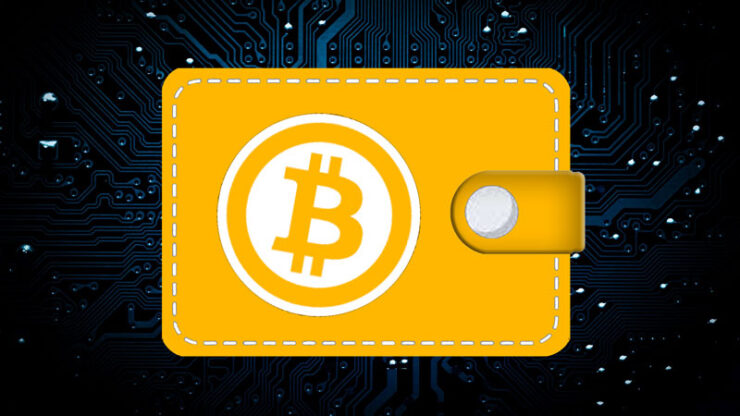
How They Work
As we mentioned earlier, they do not work like your regular fiat currency wallet. Also, a Crypto transaction is not like sending digital money from your mobile phone or desktop through digital fiat money platforms such as PayPal and Skrill. For this to make more sense, let us go back to how the Blockchain network carries out transactions.
A Blockchain is a public record that keeps its data in blocks. These blocks are simply records of each transaction, the balance in each, the address, and who owns the key (like a password) to these balances. Cryptocurrency is not directly stored in the wallet but instead exists on the Blockchain network.
So, why is it important? The basic importance is to allow you to access and use your balance on the Blockchain network — more advanced types will also let you buy Cryptocurrencies and shop with them.
Perhaps you’ve heard of public and private keys. Your wallet stores your private and public keys. The private key is like a password that entitles you to the actual Cryptocurrency. It is usually Cryptographic information that shows you are the owner of a specific amount of Cryptocurrency on the Blockchain network.
As for the public key, it is the same as your bank account number. It’s made up of numerous random numbers that the network allows a third party to access without putting the security of your money at risk. This third party could be an exchange platform or someone who wants to send you Crypto. When another person sends you Crypto, they send it to a compressed copy of your public key. As we said, it is like having a bank account number.
Different Types
There are two main categories:
- Hot
- Cold
We can also break these down further according to their unique features. For instance, they can be custodial or non-custodial and multi-signature.
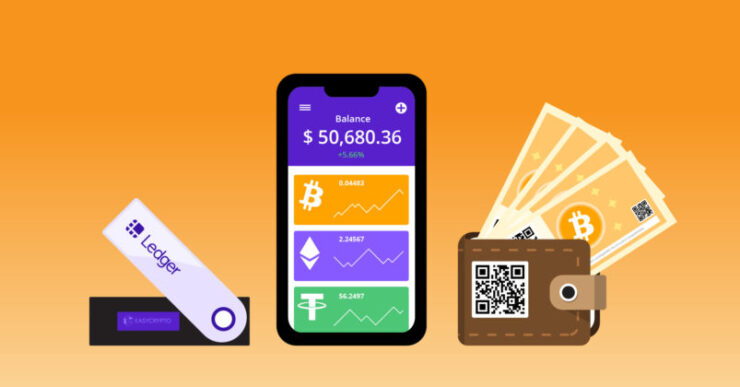
Hot Wallets
A wallet is hot if it stores your keys online. You may also call it a software wallet. This may hold your key online or in cold storage, but you will always need an internet connection before accessing your Cryptocurrency.
Using a hot wallet is riskier than a cold one because it keeps your information online — Computer networks often have vulnerabilities that hackers can use to steal your information. That said, they are easier and faster to use. In addition, they are more convenient when you do Cryptocurrency transactions regularly.
Most popular software wallets take extra security precautions, such as stronger encryption or two-factor authentication (2FA). They may also store your private key offline in a secure location. Still, it’s risky to store a large amount of Cryptocurrency online.
They may be in the form of a computer program, web application, or mobile app:
- Desktop: the app runs on your computer and stores Cryptocurrency without involving a third party. You are responsible for the security, so you might also want to have reliable antivirus software.
- Mobile: similar to the above, but lets you store and control your coins from your smartphone. They also often come with a QR code function that allows quick transactions.
- Web: this is the least secure. It is online-based so that you can access it via a web browser on your desktop or mobile phone.
Pros:
- More accessible and easier to use
- Convenient for performing regular transactions
- More affordable
- Some come for free
- Most have insurance
Cons:
- Risk of cyber attacks
- You depend on a third party
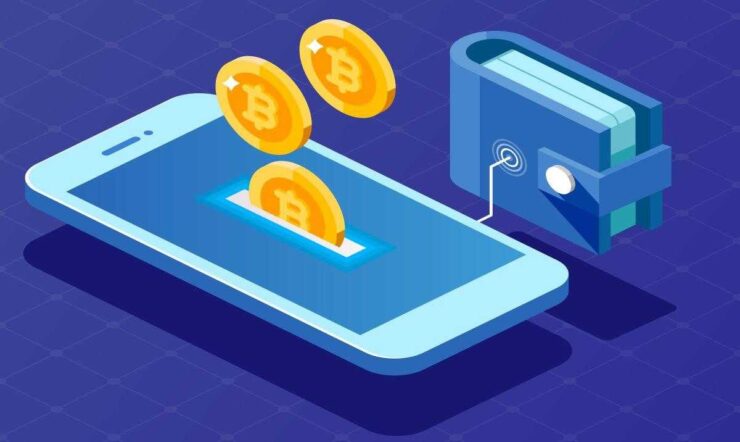
Cold Wallets (Paper and Hardware)
These do not require an internet connection constantly. You can also call it a hardware wallet. It may come in the form of paper or a USB stick. Paper wallets are plain simple. You store your keys on a piece of paper. If you lose the paper, you lose your Cryptocurrency.
Hardware wallets are more popular than software ones. They tend to look like USB sticks. Since they do not need an internet connection and come in physical form, it is more secure.
They are a great addition to your Crypto investment strategy if you work with a significant amount of Cryptocurrency. The downside is that they are often expensive.
Pros:
- More secure
- Come with a recovery phrase that helps get your assets back if you lose it
- Often immune to computer viruses
- Can host multiple Cryptocurrencies
Cons:
- Expensive
- Not a reasonable option if you only wish to hold a small number of Crypto assets
Custodial vs. Non-Custodial Wallets
Software wallets can be custodial (also known as hosted or exchange) or non-custodial. As the name suggests, a custodial wallet remains in the custody of the exchange where you buy your Cryptocurrency.
Web-based wallets are custodial. For example, if you buy and leave your Crypto on exchanges, that’s custodial.
Just as software wallets are generally more vulnerable than hardware, custodial ones are riskier than non-custodial ones. Keeping and accessing the information online makes it more vulnerable to attacks.
The non-custodial type gives you complete control over your assets. They come in the form of mobile apps and desktop apps. Also, they have more features and freedoms.
The drawback is that you may be unable to regain access to your Cryptos if you lose your key. You may also be in danger if someone else finds out about your key.
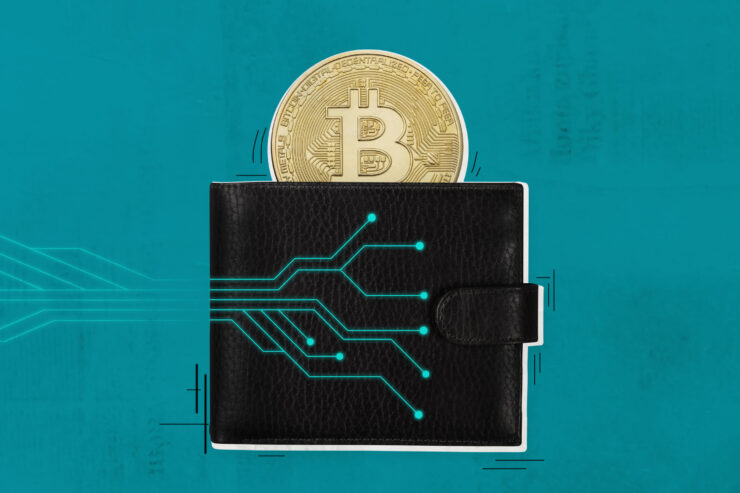
Multi-Signature Wallets
Multi-signature (also multi-sig) requires more than one private key to access the assets or authorize transactions. This solution is useful in several ways, including:
- It provides an added layer of security in case one key is lost.
- It helps prevent misuse of funds in exchanges, hedge funds, and corporations because different employees can hold unique keys.
- It allows two people, such as business partners or spouses, to co-share a Cryptocurrency portfolio.
How Do You Use a Crypto Wallet?
They are not so difficult to use, whether software or hardware. Here are a few pointers for each one:
Set-Up
- Custodial will require some personal information when setting up, just like bank security. There may also be a two-step verification step.
- Non-custodial will require that you download an app. You probably won’t have to submit any personal information. Be sure to record your private key somewhere safe as a backup.
- With hardware, consider purchasing the device from a trustworthy company such as Ledger or Trezor. You’ll also need to download its companion software and install it on your computer or mobile device. This software allows you to use it through your PC or phone.

Sending and Receiving Crypto
After setting it up, you can send or receive some Crypto. The general way of doing it is as follows:
- Receiving Cryptocurrency: get your address (private key) from your wallet under the “generate address” feature. Share the numerical address or the QR code with the person who will send you Crypto.
- Sending Cryptocurrency: you will need the receiving address to send Crypto. Then, locate the part that says “send.” For your first transaction, consider starting with a small amount.
A Straightforward Crypto Investment Strategy
Trading in Cryptocurrencies may be difficult if you are just getting started. There are many industry terms, market trends, and Blockchain mechanics to understand. Well, all these complications should not deter you from making the bold, wise decision to grow your money. You now have an easier way of doing it.
There are new entries into the Crypto and alternative finance space that earn high returns on your Crypto, click here to find out more. They provide users with safe access to high-interest gains of up to 12%. Their Crypto experts follow up on the market conditions and lend Crypto from your portfolio to established institutions for a profit. They also provide:
- Zero Crypto buying fees
- No lock-in periods (cash out whenever you want)
- Fast deposits and withdrawals
- High security
- Highest interest rates on your balance of any size
- Insurance
- A licensed and regulated platform
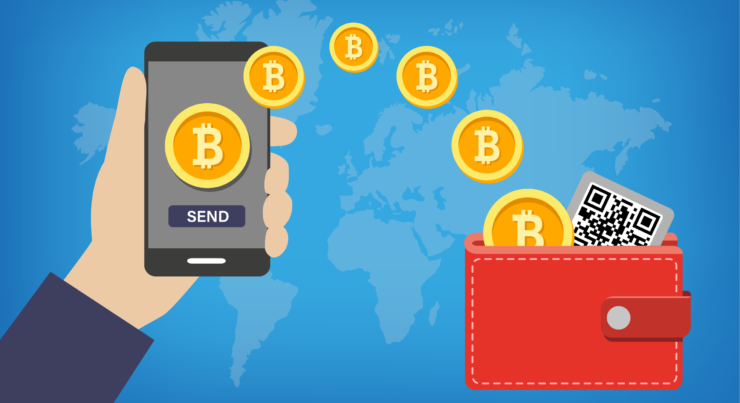
So, what are you waiting for, go check out the platforms and sign up today!

